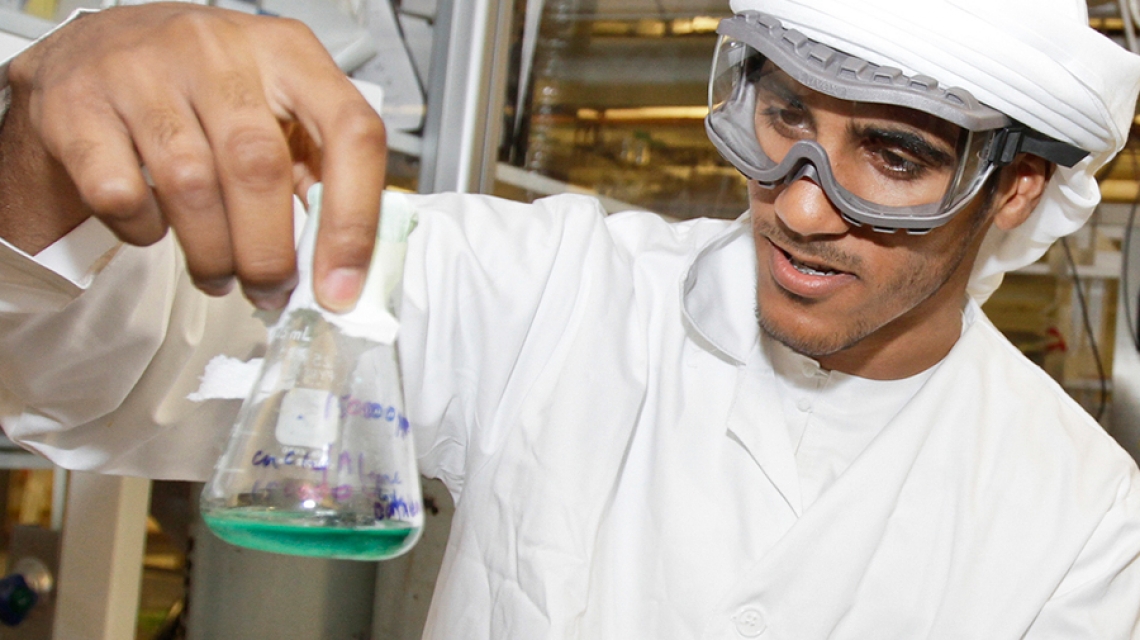
By Dietmar Siersdorfer
Technological innovations are not developed in a vacuum. They are the result of an innovation ecosystem that begins with primary schools that teach children a love of science and mathematics, and to high schools that provide academic rigor. It continues through to the higher-secondary level where colleges and universities provide the advanced training and opportunities for aspiring innovators to reach their dreams.
As an international brand focusing on innovation in electrification, automation and digitalization, Siemens understands the importance of these critical components of the innovation ecosystem. Without a vibrant and relevant educational system to inspire, train and guide young people into STEM fields, there would be no technicians, engineers, researchers and analysts to join our teams and develop our products. Education and training also play a key role in nurturing the understanding and value of innovation, which is key to building the market for innovative products.
That is why Siemens supports the development of youth in the UAE and around the world. We believe a company that does not add value to society has no right to exist. With this in mind, we pride ourselves on ingenuity and on looking beyond mere profit-making to positively contribute to society through the transfer of knowledge via educational and training initiatives.
Here in the UAE, one of our most important markets, we pay particular attention to the entire human capital pipeline – from students, to university researchers, to hiring new local graduates. We are active participants in the UAE Youth Ambassadors Program, which was launched by His Highness Sheikh Mohammed bin Zayed Al Nahyan, Crown Prince of Abu Dhabi and Deputy Supreme Commander of the Armed Forces, to develop and prepare Emirati youth to lead partnerships with countries of strategic importance to the UAE and assume prominent positions in the country’s key sectors. Through this program we facilitate UAE National students on learning trips to Germany, where they visit Siemens facilities in Berlin and Munich.
Another part of the human capital development pipeline is the expansion of relevant and industry-appropriate undergraduate programs, to ensure graduates are able to find gainful employment. In this regard, Siemens is collaborating with Abu Dhabi Polytechnic for the implementation of its Mechatronic Systems Certification Program, which was recently awarded the first AHK Education Award from the German-Emirati Joint Council for Industry and Commerce (AHK). The Siemens Mechatronic Systems Certification Program is an international, industry standard comprehensive skills certification in mechatronic systems offered together with partner schools worldwide.
Of course, it is of vital importance that the education students receive be of relevance to their country and the wider world. To ensure that the specialized technical skills the UAE’s graduate students receive are directly relevant to local industry, we also engage in collaborative university research. Siemens has collaborated with Abu Dhabi’s leading research university focused on advanced technologies and clean energy, the Masdar Institute of Science and Technology, on a number of projects that are directly relevant to the country’s strategic goals. One of our earlier projects with the Institute investigated the use of renewable technology through testing and research to identify its applications in the Middle East region. The collaboration aimed to support the UAE’s goal of increasing the percentage of renewable energy in its energy mix to 24% by 2030.
We have also completed several research projects with Masdar Institute focusing on carbon capture, utilization and storage (CCUS), involving CO2 capture at gas-fired power stations with focus on equipment designs, waste handling and CO2 purification requirements for underground storage or enhanced oil recovery. This is an area of research that has multiple benefits, potentially helping mitigate climate change, reduce the UAE’s carbon footprint and contribute to the UAE’s goal of 70% enhanced oil recovery.
And at the end of the pipeline, when STEM-loving young graduates enter the workforce, Siemens is proud to hire them as the newest members of our own innovation community. Today, we employ some of the UAE’s latest engineering graduates. We currently have one Masdar Institute alumni at the Siemens head office, and another graduate who participated in a semester of study at Masdar Institute at our Denmark offices. This gives the UAE’s future innovators the opportunity to take what they’ve learned through their studies and student research, and apply it to advancing industry and having a real-world impact. We are proud to be part of the UAE’s human capital development and look forward to seeing our contributions to the education of the country’s young people bear fruit.
Dietmar Siersdorfer is CEO of Siemens Middle East and UAE
Printed in The Gulf Today on 4 June 2016